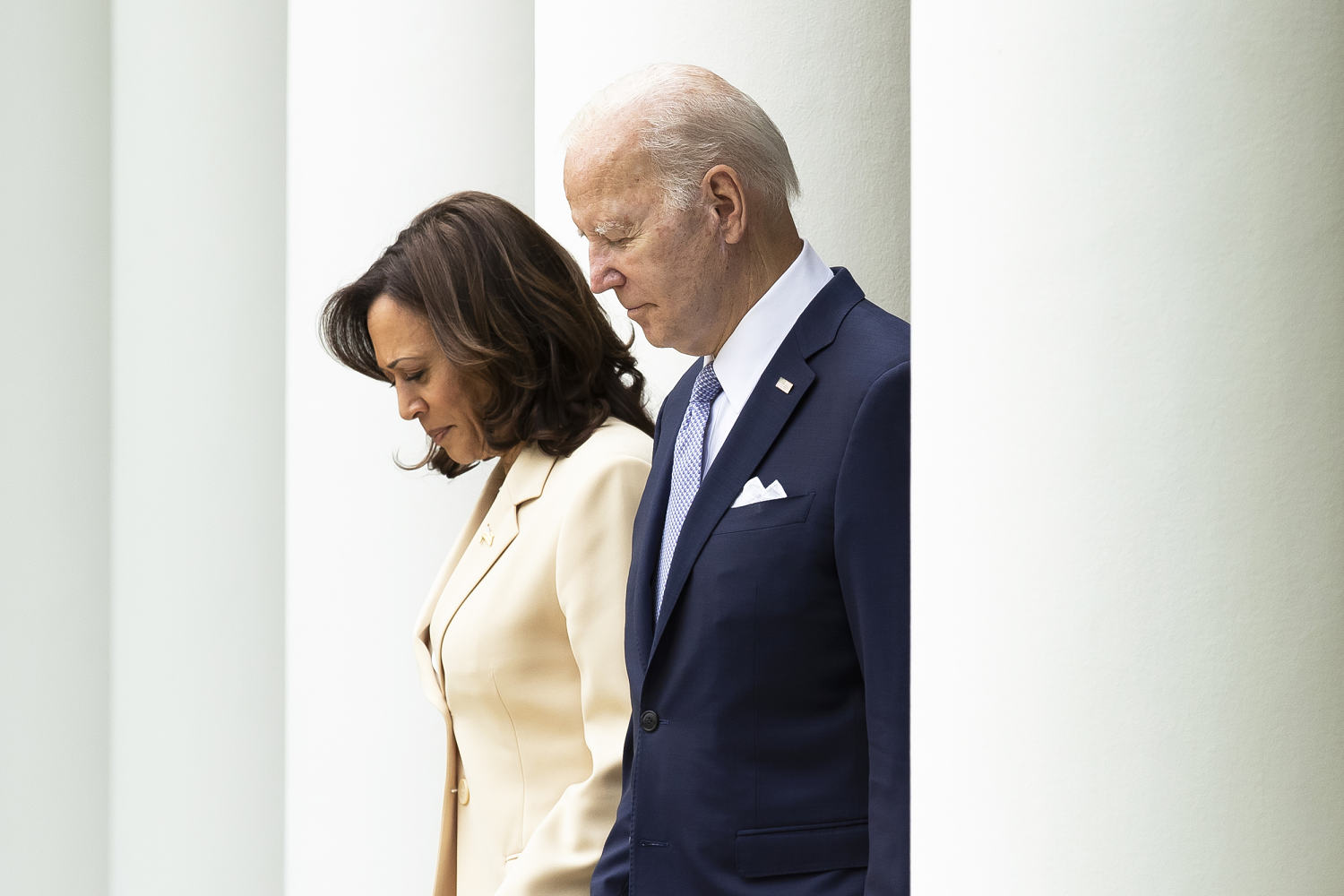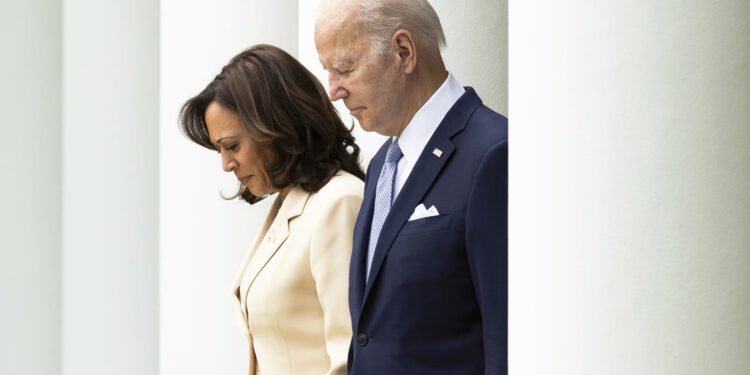
If President Joe Biden decides to step aside for the 2024 race, Vice President Kamala Harris would be in line to get first dibs on the tens of millions of dollars in his campaign war chest.
Biden has not given any indication he will end his re-election bid after a stumbling debate performance last week. But it’s a scenario that was discussed during a tense call between the campaign’s aides and donors on Sunday.
Biden campaign manager Julie Chavez Rodriguez said during the call that in the event of the president dropping out — which she emphasized he had no intention of doing — Harris would then control most of the money in their campaign account, which amounted to $91.2 million as of May 31.
That appears to be correct, according to some campaign finance experts — but likely only if she then became the Democrat’s presidential nominee.
”This has this unique twist to it with Harris still being a part of the campaign and being considered part of the campaign from the get-go,” said Kenneth Gross, a senior political law counsel at Akin Gump and former associate general counsel for the Federal Election Commission.
Harris’ name is listed on FEC filings for both Biden’s statement of candidacy and his campaign account’s statement of organization, meaning she would likely be able to use the funds if she continues with the campaign. Campaign finance law also states that a campaign committee designated by a presidential candidate can be used by the party’s vice presidential candidate.
“Both candidates are on the account,” Gross said. “And I would think that she would be able to use the money if she is running for president. She would be the only one that could do that.”
The Campaign Legal Center’s campaign finance team also determined that Harris could access the money in the account if she succeeded Biden as the party’s presidential nominee.
But they noted via email that Harris would only be able to access those funds if she is at the top of the ticket. In other words, if she remained the vice presidential nominee and the party picked a different presidential nominee, that would be a different campaign.
Gross said he was unsure if Harris would be unable to access the funds if she remained the party’s vice presidential nominee without Biden.
“That is such a unique scenario, I would think the campaign would want to seek an FEC opinion on that question,” he said.
Claire Rajan, a former FEC litigation attorney who leads Allen & Overy’s political law group, also agreed Harris could likely access the funds as the party’s presidential nominee, but was doubtful she could do so as the running mate to a different standard-bearer.
If Harris did not become the nominee under this scenario, the Campaign Legal Center’s campaign finance team noted that Biden’s campaign money could be converted into a political action committee. But a PAC can only make a small maximum donation of $3,300 per election to another candidate. The Biden campaign could also refund donors’ contributions, who could in turn donate to a new candidate.
Rajan and Gross also noted that if Biden steps aside, the funds could be transferred to a charity or a super PAC, which would not be able to coordinate with the campaign. The funds could also be transferred to the national party.







